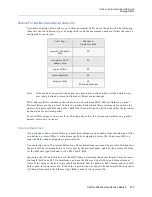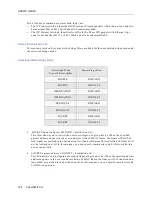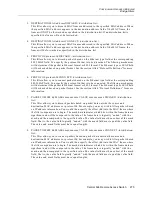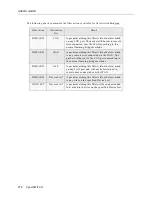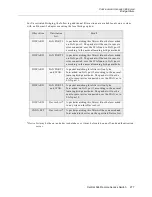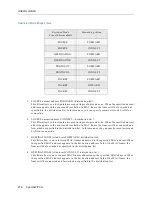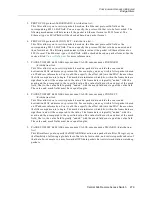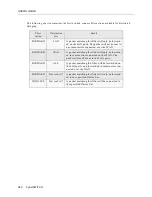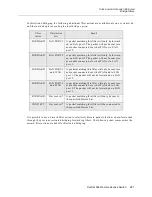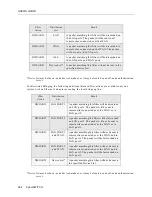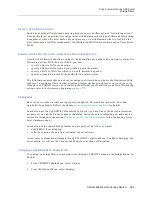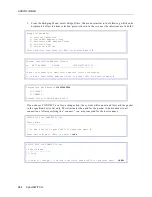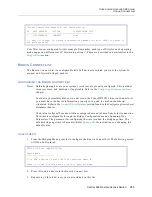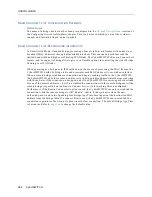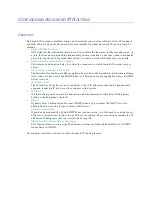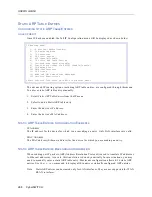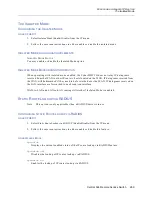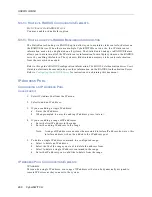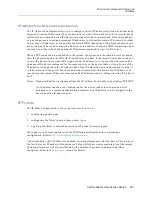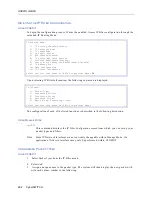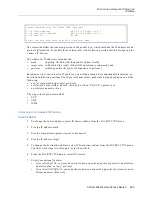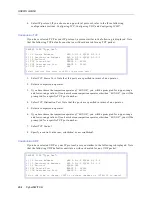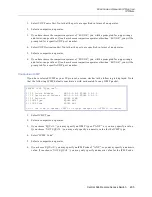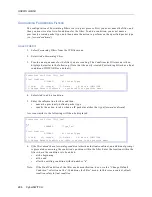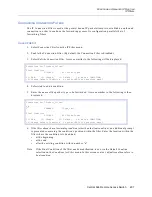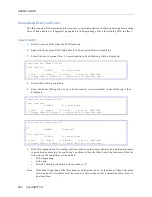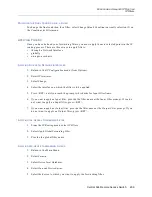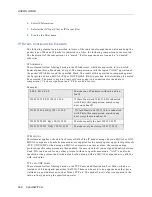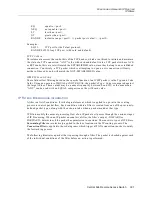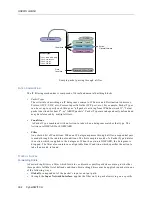
C
ONFIGURING
A
DVANCED
IP R
OUTING
O
VERVIEW
By default, IP routing is disabled when you first install your system software. After IP routing is
enabled, there are optional advanced features available. Optional advanced IP routing features
include:
•
Static ARP Table Entries
ARP (Address Resolution Protocol) is used to translate IP addresses to Ethernet addresses. As
a rule, this translation is handled dynamically. In rare situations, a user may need to manually
enter this translation. This menu item allows you enter a static ARP table entry manually.
•
Enable/Disable Isolated Mode Option
The Isolated mode option helps to restrict the resources to which remote IP devices can get
access.
•
Static Routes Lookup via RADIUS
The Static Routes Lookup via Radius option allows you to either enable or disable maintaining
static routes for devices on the RADIUS Server. This option is only applicable when a RADIUS
Server is in use.
•
IP Address Pool
The IP Address Pool allows you to configure a list of IP addresses that can be dynamically
assigned to remote IP devices as they connect to the system.
•
IP Filters
IP Filters allow you to control the admission and transmission of individual IP datagrams
based on the datagram’s contents.
•
DHCP
Dynamic Host Configuration Protocol (DHCP) allows you to access the DHCP server to
allocate IP addresses to all types of remote IP devices.
•
Security Associations
If you have purchased the CyberSWITCH encryption option, you will need to configure a set
of Security Associations in order to use IP layer encryption. These associations include the IP
addresses of datagrams that you select to be encrypted.
•
NBNS and DNS Name Server Addresses
This feature allows you to assign IP addresses to Domain Name System (DNS) or NetBIOS
Name Servers (NBNS).
This chapter includes a section for each advanced IP routing feature.

